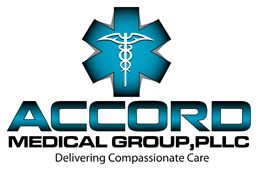Acoustic Neuroma
Introduction
Anatomy
Causes
Symptoms
If the facial nerve is also involved you may experience facial pain, paralysis, tingling or numbness. Drooling may occur because of poor mouth closure. Less common symptoms include headache, dizziness, balance problems, vision problems, impaired eye movement, and taste changes.
Diagnosis
Treatment
Microsurgery is used to preserve the facial and auditory nerve. Microsurgery is used to remove all or part of a tumor. A partial tumor removal is used to preserve nerve tissue, while eliminating enough of the tumor to make it non-life threatening.
Am I at Risk
Symptoms from acoustic neuroma most frequently develop between the ages of 30 and 60. The tumor develops very slowly and may be present well before symptoms are experienced. Children rarely develop the condition.Complications

Copyright © - iHealthSpot Interactive - www.iHealthSpot.com
This information is intended for educational and informational purposes only. It should not be used in place of an individual consultation or examination or replace the advice of your health care professional and should not be relied upon to determine diagnosis or course of treatment.
The iHealthSpot patient education library was written collaboratively by the iHealthSpot editorial team which includes Senior Medical Authors Dr. Mary Car-Blanchard, OTD/OTR/L and Valerie K. Clark, and the following editorial advisors: Steve Meadows, MD, Ernie F. Soto, DDS, Ronald J. Glatzer, MD, Jonathan Rosenberg, MD, Christopher M. Nolte, MD, David Applebaum, MD, Jonathan M. Tarrash, MD, and Paula Soto, RN/BSN. This content complies with the HONcode standard for trustworthy health information. The library commenced development on September 1, 2005 with the latest update/addition on February 16, 2022. For information on iHealthSpot’s other services including medical website design, visit www.iHealthSpot.com.

